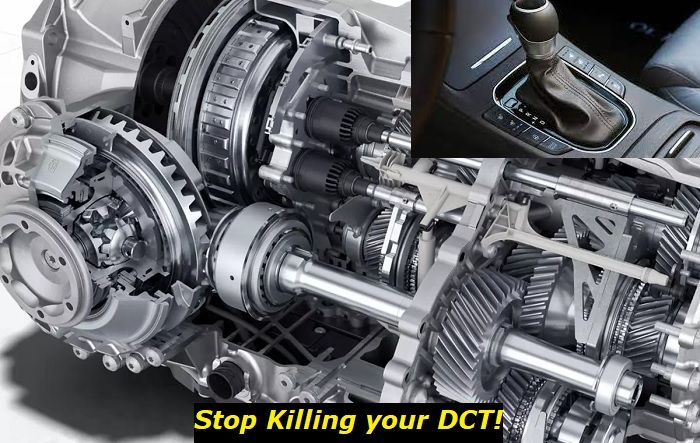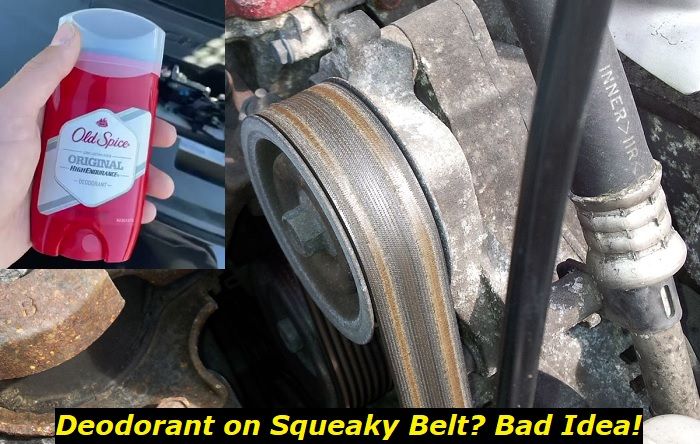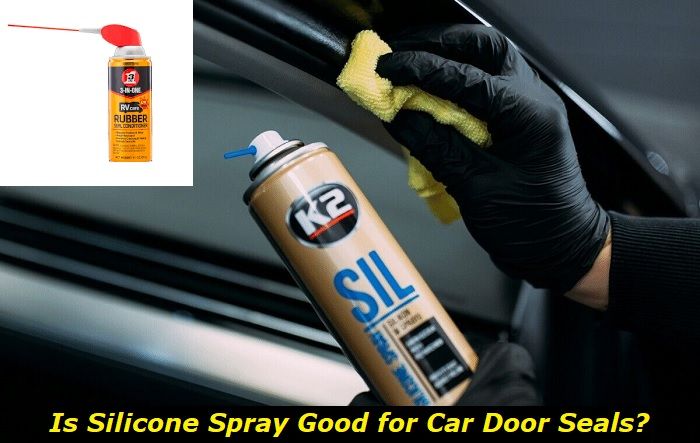Spending money is not the favorite activity of the majority of people. Well, if you spend money on things you love like good trips or wonderful clothes, you can put up with some attacks on your credit card. But if you spend this money on fuel, oil, filters, and suspension parts, you won't be happy because this doesn't change much in your life. Or maybe it does?
Today, we'll talk about the economy of a driver's life. Why do some people only spend a hundred bucks monthly to maintain and drive their vehicles while some other people may spend thousands? We've prepared five tips that touch on both tactical and strategical things in owning a vehicle.

Let's dive in!
1. Choose a car that suits your needs
Buying a new vehicle in America is not a big deal. Just find a leasing opportunity or a good loan that suits your budget and may be covered by your monthly income without many problems. And this simple access to new cars often becomes a big problem for choosing a car you actually need.
One may think: Why should I buy this ugly Nissan Versa or Ford Fiesta if I actually can get a Ford Mustang or a Chevy Camaro paying just $250 bucks more monthly? And yes, this may sound good, but it adds $250 to your monthly payments along with adding thousands of dollars to your yearly budget for maintaining your new car.
Getting a luxury car will inevitably lead to much higher expenses. And it's not about your monthly payments or the initial cost of the vehicle. It's about maintaining your car and keeping it on track.
Here are some quick questions we've come up with to help you choose wisely:
- Do you ever travel on highways? If not, you'll probably need a small city car that is economical and cheap.
- How many miles do you usually go a year? If you do more than 15,000 miles, you will need to think of a more comfortable car with better seats and better suspension to ensure comfort.
- How many family members do you have? If you have one spouse and one child, you can buy a small car - no need for a minivan or an SUV with a third row of seats.
- Do you have any other vehicles in the family? If yes, it may be a good idea to buy a vehicle of a different class for different purposes.
- Are you ready to pay more at the pump? If not, you should choose a vehicle with a small and efficient engine that ensures better gas mileage.
- Are you ready to pay more at a car dealer? Maintenance costs are always on you while repair may be paid for by the dealer (under warranty rules). If you don't want to overpay, look at budget-friendly cars.
- Is it your first vehicle? If yes, you shouldn't probably go for expensive cars. First cars usually get their bodies damaged in small accidents and cheaper cars are usually cheaper to repair.
After answering these questions, you'll be ready to make a wise choice. At least, you will certainly give up the idea of buying a vehicle that will not suit your needs but will take money out of your pocket.
2. Be careful with gas mileage
You may read in the manual that your vehicle gets 32 mpg on highways, for example. But it doesn't mean that you will always get this efficiency. When a manufacturer tests its new vehicle, it uses tracks with no other cars, no traffic lights, no crossroads, etc. So, the vehicle just goes at 55 mph and then the test driver or the computer analyzes the fuel mileage.
You can reach this figure sometimes if you keep up with the optimal speed limit and don't stop, don't accelerate sharply, and don't change the speed too often. But is it possible? Well, it's possible just in some cases.
In the city, it's very hard to estimate the fuel mileage, so manufacturers don't have a clue about this figure and just often guess it.
Here's what you can do to spend less money on fuel:
- Never accelerate too fast because this is when your vehicle burns the maximum possible amount of fuel.
- Don't drive faster than 60 mph. In most cars, the fuel consumption will gradually grow after this speed mark.
- Be careful and calm when you are driving. Being calm and not pressing that acceleration pedal too hard is the best way to economize some fuel during city driving.
- Try not to engage the brake pedal much. This technique will allow you to get used to the thought that you need to let the car brake using the engine and transmission, so you will release the gas pedal much sooner and burn less fuel.
- Choose good routes. Check traffic jam maps and always use better routes to economize some fuel.
- Don't use the air conditioner, music, lights, and other electric and electronic equipment at times when you don't need it. This equipment adds to the fuel consumption.
These are simple and easy-to-apply tips that you can use for reducing fuel consumption and improving the efficiency of your vehicle. And while it may seem not worth it during a week, it will save you a lot of money during a month.
For example, if you just save 1 liter of fuel for every 50 miles (which is possible if you apply the above-given tips), you will save, on average, 300 liters or about 80 gallons of gas a year.
3. Be a careful and mindful driver
Over half of problems with cars, including fatal issues, happen because of the drivers' mistakes. While half of them are technical issues like not topping up oil when it's needed or neglecting high engine temperature, some of them just take place because a driver is not careful on the road.
We mean the drivers who carelessly go over road pits, forget to release the handbrake before starting to move, not warming up the engine, neglecting shifting recommendations in manual gearboxes, etc. really come more often to dealers and repair shops and need to pay huge sums of money for repair.
You will not need this if you remember these simple rules:
- Don't go too fast if the road quality is low and you can see pits and other problems. You may just let one of the wheels go in a pit and be damaged which will lead to immediate expenses and also add to suspension problems in the future.
- Be concentrated when you are driving. Once you get into the car and fasten your seatbelt, forget about anything else and concentrate on driving. This will help you not to forget some important things like releasing the handbrake.
- Read the manual. Every car needs special care. For example, some manufacturers say you need to warm up the engine for at least 1 minute. Some also say that you have to check some things in a car if it was parked for more than 1 week. The manual is an interesting book you should get acquainted with.
- Avoid any situations that your car wasn't made for. For example, avoid off-roading in your sedan. This will lead to damages, suspension problems, engine and transmission overheating, etc.
We can keep on listing things that you have to avoid or control, but many of them are just obvious for every driver. You know them pretty well, so please follow your knowledge to dramatically reduce expenses on your vehicle.
This will help you avoid nearly any technical problems and also make the lifespan of your vehicle much longer. Is it worth it? We believe yes!
4. Don't drive your car with any breakdowns
If you suspect or know that your vehicle has some problems with suspension, steering, engine, transmission, or any other parts, the best choice will be to go to the dealer or to the repair shop you can rely on and repair the vehicle.
A lot of fatal issues in modern cars start with minor problems and only become fatal after they are not repaired for many weeks.
For example, your starter motor starts malfunctioning, spreading weird sounds. If you repair or replace it, the vehicle can go further with no other issues. But if it's not repaired, the broken starter gear can damage the engine flywheel and this will be a much worse situation.
So, here's what we offer for reducing the costs of owning a car:
- Every year or every 15,000 miles, you should ask a specialist to check your vehicle and detect any possible issues, including minor ones.
- Never delay the car repair if it's highly needed. If you drive the car with the bumping suspension, something may just fall off the vehicle and lead to accidents.
- Never drive your car if you aren't sure it's totally OK and not damaged. It's better to check it, especially before any long trips.
- Read some forums and learn which common problems usually happen with your model. This will help you concentrate your attention on any weak links that the vehicle may have.
If you don't follow this advice, you will probably have to spend thousands of dollars on repair just because something expensive will fail regularly. And you can avoid this just by being more attentive to any problems with your vehicle.
Never ignore minor issues because they will quickly grow into big problems and lead to huge expenses.
5. Avoid tuning and modding your vehicle
Modifications and tuning are something nearly every car owner wants to try. But it's usually not recommended for those who want to save money. If you are still reading this article, you want to get more tips on how to stop spending tons of dollars on your vehicle.
And here's our golden advice: never agree to any car modifications and performance upgrades. Why? There are many reasons:
- First of all, nearly all car mods are quite pricey and you will have to spend a lot even before you get any results. In most cases, these results aren't worth the money you spend.
- Also, it's hard to stop. People often get mod addicts and they keep spending their money on new mods. But it will not affect the price of your car on the market, so this investment is just for your fun.
- Performance mods nearly always deteriorate the lifespan of your engine and transmission. This is an important factor to consider if you are going to drive your vehicle for a long time.
- Any performance parts like big turbochargers and custom exhaust systems are expensive to buy. And they are also expensive to maintain and repair.
- Once you get more horsepower and torque in your engine, you will have to think about brakes, wheels, steering, suspension, and other modifications that will just lead you to bankruptcy.
Modding a car is a good idea when you have a second vehicle, a lot of money to waste, and a lot of enthusiasm. In all other cases, this will not bring anything good, it will just take your money and make you spend even more on maintaining your vehicle.
Final words
Here, we've presented five tips on how you can reduce your expenses on a car. We understand that vehicles are now an integral part of our lives and we can't live without cars. That's why we have to consider a certain amount of money to spend on cars from our family or personal budget.
But quite often, people in America spend much more on their vehicles than they can or should spend. We hope that after following our advice, you will stop spending extra money on your car and will be able to cut some driving costs.
About the authors
The CarAraC research team is composed of seasoned auto mechanics and automotive industry professionals, including individuals with advanced degrees and certifications in their field. Our team members boast prestigious credentials, reflecting their extensive knowledge and skills. These qualifications include: IMI: Institute of the Motor Industry, ASE-Certified Master Automobile Technicians; Coventry University, Graduate of MA in Automotive Journalism; Politecnico di Torino, Italy, MS Automotive Engineering; Ss. Cyril and Methodius University in Skopje, Mechanical University in Skopje; TOC Automotive College; DHA Suffa University, Department of Mechanical Engineering






Add comment